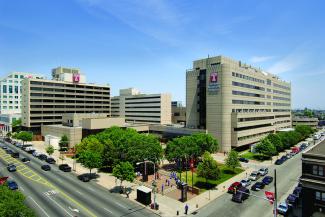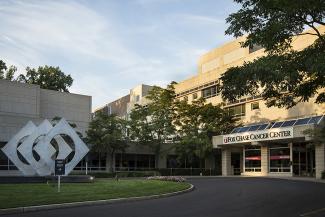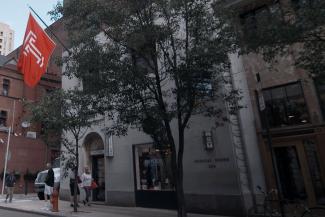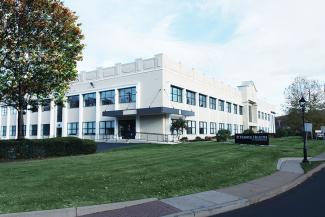At Temple Health, we offer robotic surgery to treat men with benign (noncancerous) prostatic hypertrophy (BPH) who have a severely enlarged prostate.
Many men with an enlarged prostate caused by BPH can be treated with medications to shrink the gland or improve urine flow and bladder emptying. When men have worsening urinary obstructive symptoms due to prostatic enlargement that failed medical therapy, they may be candidates to undergo a transurethral surgical procedure to alleviate their obstruction and improve the urinary symptoms. Procedures such as Transurethral Resection of Prostate (TURP) and Urolift are examples of effective surgical procedures to help remove or destroy the obstructing prostate tissue and create a wider channel.
Robotic-Assisted Simple Prostatectomy for BPH
Traditional surgical options for smaller, obstructed glands such as TURP or greenlight laser are not ideal when the prostate is very enlarged. Historically, patients with this condition are treated with open surgery using a large incision. In addition, men who undergo this type of surgery tend to have more blood loss due to the increased blood supply in very enlarged prostate glands. Sometimes, men with his condition can develop bladder outpouchings (diverticula) and stones (calculi) which cause additional issues and concerns. Men with enlarged prostates and obstructed urinary flow are prone to have recurrent urinary infection, bleeding, bladder stone, urinary retention resulting in catheterization and even permanent kidney damage. In some men with severely enlarged prostates, surgery to remove a large portion of their prostate tissue from around the urethra is recommended.
This procedure is called enucleation – physically shelling out the abnormally enlarged portion of the organ – and is traditionally done through a large, open incision below the navel (retropubic or suprapubic prostatectomy).
Today, this surgery can also be performed with the da Vinci® Surgical System in a minimally invasive procedure called a robotic-assisted simple prostatectomy.
Compared to the open simple prostatectomy, robotic techniques allow more precise removal of the inner part of the prostate with smaller incisions, reduced blood loss, less need for blood transfusion, less pain, shorter hospital stay (usually one to two days versus a week), and faster overall recovery before a return to normal activities.
A variety of different techniques are used in robotic simple prostatectomy. The exact approach and incision locations depend on the prostate size and the patient's symptoms and other conditions. At temple health, we have developed and pioneered an improved simple prostatectomy technique that not only removes the obstructed adenoma but also realigns the urinary tract to decrease postoperative bleeding and expedite the patient's urinary recovery. Since developing this new technique in 2014, Temple health has become the highest volume robotic simple prostatectomy center in the US.
Recovery from robotic surgery is generally much easier than after open surgery. However, patients usually need to keep a catheter for several days after surgery. After catheter removal, it is typical to see a significant improvement of urinary flow rates and bladder emptying.
Why Temple Health?
Temple surgeons are pioneers in robotic-assisted simple prostatectomy for benign prostatic hypertrophy. Since developing our unique technique at Temple Health, our surgeons have demonstrated our technique and results globally. Since 2014, Temple health has become the highest volume robotic simple prostatectomy center in the US. Our experience may allow us to perform robotic procedures for patients with special needs or risk factors (such as Jehovah's Witness patients or those with obesity, multiple prior surgeries or complex medical conditions) who might otherwise be told that they are not eligible for open or minimally invasive surgery. If your urologist tells you that your prostate is very enlarged and you need a surgical procedure, a consultation with a Temple robotic surgeon is highly recommended.
Ready for an Appointment?
Find a doctor near you, request an appointment, or call 800-TEMPLE-MED (800-836-7536) today.



